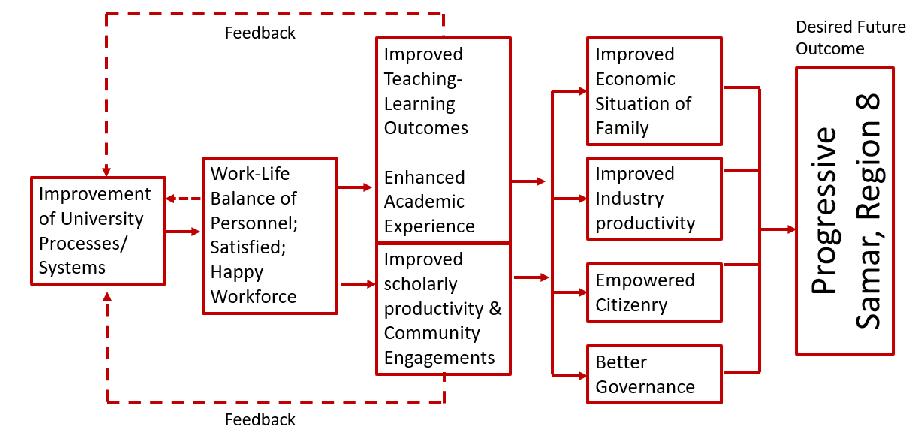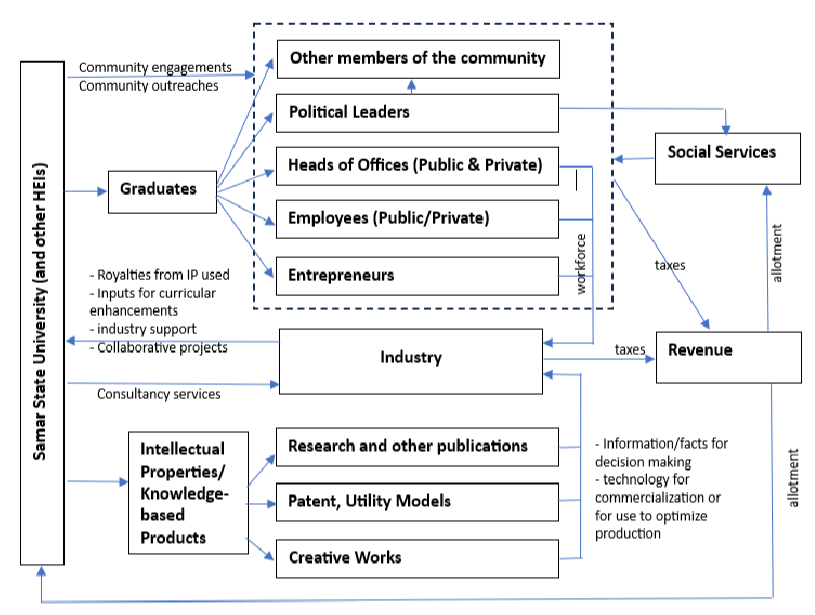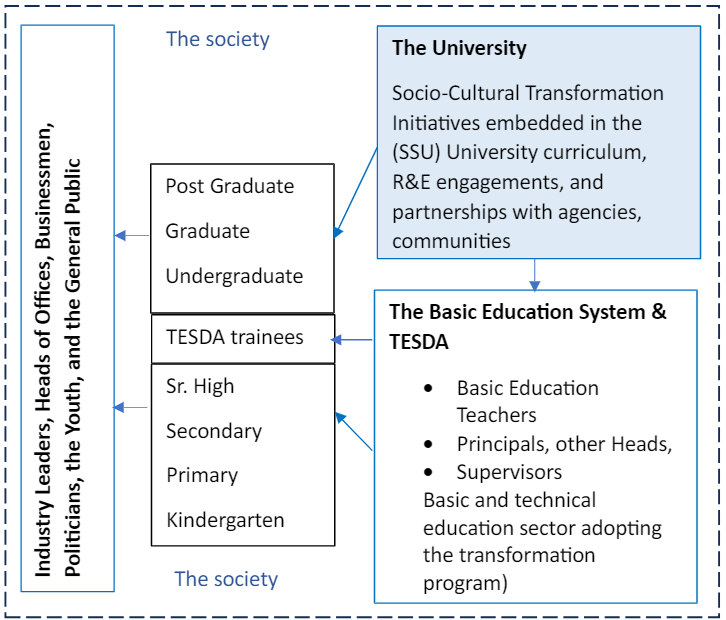 Where there is a great university, there is social progress. Educational leaders universally agree that the ultimate goal of academic institutions is "social progress." Samar State University (SSU), with its humble beginnings over 100 years ago and its elevation to university status in 2004, should reflect this in the state of Samar today. However, for many decades, the Samar Island Provinces, particularly (Western) Samar Province, have remained the poorest in Eastern Visayas, with recent poverty incidence among the worst in the province. This indicates that the influence of the university or academic institutions has been insufficient.
Where there is a great university, there is social progress. Educational leaders universally agree that the ultimate goal of academic institutions is "social progress." Samar State University (SSU), with its humble beginnings over 100 years ago and its elevation to university status in 2004, should reflect this in the state of Samar today. However, for many decades, the Samar Island Provinces, particularly (Western) Samar Province, have remained the poorest in Eastern Visayas, with recent poverty incidence among the worst in the province. This indicates that the influence of the university or academic institutions has been insufficient.
Earlier this year, the author applied for the headship of Samar State University, aspiring to transform SSU into a true agent of social transformation. His plan for SSU is deeply rooted in cultural transformation, addressing one of the major factors behind Samar’s persistent poverty. My proposal envisions SSU not just as an academic institution but as a transformative force driving socio-economic progress. With Samar's alarming poverty rates, there is an urgent need for SSU to play a pivotal role in alleviating poverty and fostering empowerment.
 The role of higher education extends beyond mere management. It is about shaping communities and driving social progress. High-quality education can significantly impact societal development by fostering economic prosperity, improving healthcare, promoting human rights, and enhancing living standards. Renowned educators emphasize that educational institutions are crucial in nurturing competencies and values that drive societal advancement.
The role of higher education extends beyond mere management. It is about shaping communities and driving social progress. High-quality education can significantly impact societal development by fostering economic prosperity, improving healthcare, promoting human rights, and enhancing living standards. Renowned educators emphasize that educational institutions are crucial in nurturing competencies and values that drive societal advancement.
Samar Province faces severe socio-economic challenges. Despite a national decline in poverty rates, Samar’s poverty rate has surged to 35.8%, making it the poorest in Eastern Visayas. The province’s rich natural resources, including minerals and fisheries, contrast starkly with its economic struggles. Political and cultural factors, such as vote-buying and ineffective governance, exacerbate these issues, highlighting the need for a systemic cultural shift, which education can foster.
Higher education institutions are not only engines of economic growth but also crucial in cultural transformation. They generate knowledge and innovations that can drive economic prosperity and social progress. Yet, despite the growth of higher education institutions in the Philippines, only a few rank among the world’s top universities. This indicates a need for significant improvements in educational quality to influence social change effectively.
 Samar State University, with its rich history and comprehensive range of programs, has the potential to address these challenges. Achieving its vision of becoming a top 200 university in Asia and significantly reducing poverty in Samar requires a strategic approach. This includes strengthening programs, enhancing faculty development, increasing research productivity, and improving alumni engagement.
Samar State University, with its rich history and comprehensive range of programs, has the potential to address these challenges. Achieving its vision of becoming a top 200 university in Asia and significantly reducing poverty in Samar requires a strategic approach. This includes strengthening programs, enhancing faculty development, increasing research productivity, and improving alumni engagement.
By reexamining and enhancing its strategies, Samar State University aims to become a beacon of innovation and societal impact, driving progress in Samar Province and beyond. The proposed vision emphasizes not only academic excellence but also a commitment to addressing socio-economic challenges and fostering a culture of empowerment and transformation.
Click this link to read the entire proposed plan for SSU. While the author did not win the votes of the Board of Regents of Samar State University, He have made the plan available for everyone at SSU to consider and possibly adopt or use as input for their own plans.
